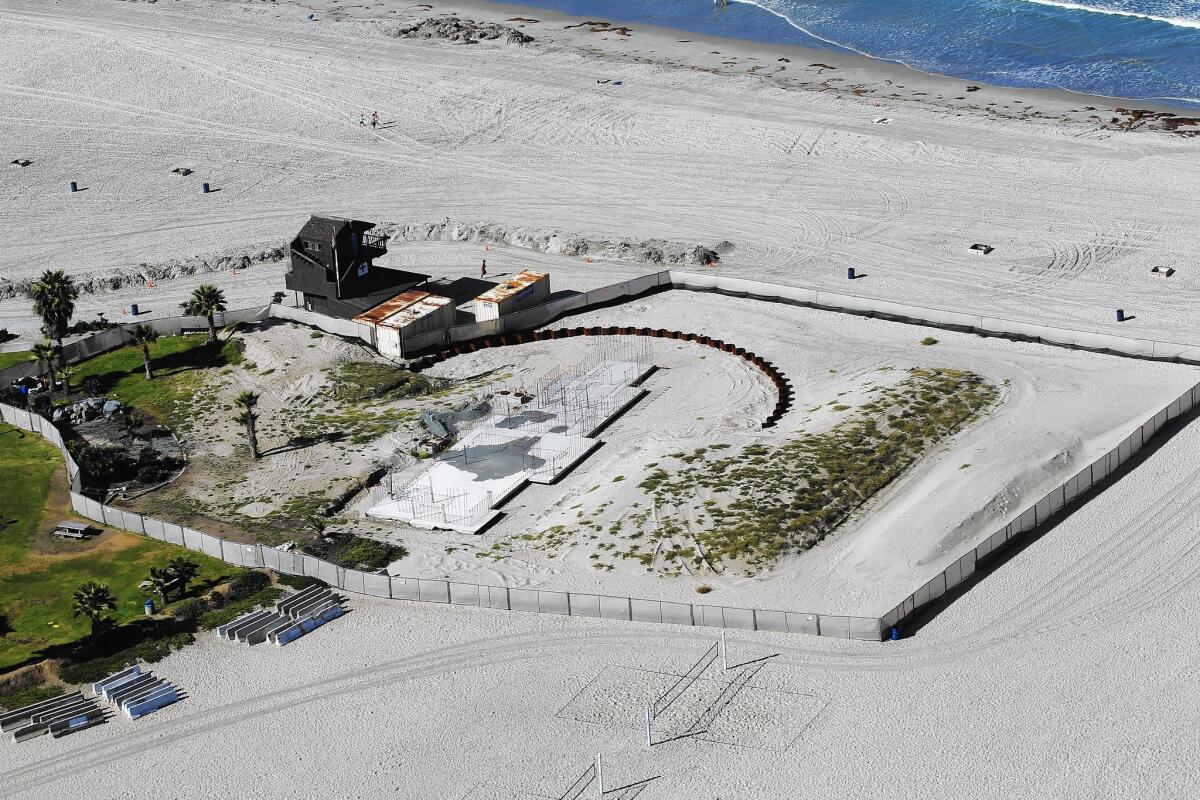Neighbors win ruling against bigger lifeguard tower on San Diego’s Mission Beach

Construction on the south Mission Beach lifeguard station has taken more than eight years so far. A judge ruled in favor of neighbors who complained about the view-blocking tower.
- Share via
A San Diego Superior Court judge has agreed with neighbors who said that construction of a new, larger lifeguard tower on south Mission Beach was proceeding without proper permits.
The three-story, 3,800-square-foot tower was to replace a 900-square-foot wooden structure from the 1970s.
The project has been in the works since 2002, when it was budgeted to cost $1.1 million. The price has grown to just under $5 million due to delays, erosion-control and other issues. It includes a first-aid station, vehicle bay, administrative offices and two observation decks.
Neighbors say it will block their views.
City officials planning the project obtained a required permit from the Development Services Department on Sept. 27, 2006, and it required them to begin construction within three years.
Neighbors argued that the permit had expired by the time construction started last spring. They filed suit in August, and city officials argued the delay in filing the suit should invalidate it under the “doctrine of laches.”
Judge Katherine Bacal, who heard the matter in November, issued her ruling last week. She rejected the city’s argument that the lawsuit was filed too late.
“It appears the city is asking the court to conclude that an approximate three-month delay in bringing suit to be unreasonable,” she wrote, noting that “the city delayed for over eight years to begin construction.”
Also, she said, the city didn’t need the neighbors to point out permit issues. “The city is charged with knowing whether its permit is valid,” she wrote.
The city also argued in court that the development permit was still valid because officials continued to work on the project in ways such as seeking approval from the California Coastal Commission. The judge said that did not comply with the city’s own requirements.
“The specific, mandatory means of utilization was through construction, grading or demolition, commenced and pursued in a diligent manner,” she wrote. “Alternatively, if this could not be accomplished, the city could have sought an extension.”
She noted that “the undisputed evidence showed that no construction, grading or demolition occurred” for about 81/2 years.
The city’s chief of communications, Matt Awbrey, said the city plans to appeal the case on its merits.
Young writes for the San Diego Union-Tribune.
More to Read
Sign up for Essential California
The most important California stories and recommendations in your inbox every morning.
You may occasionally receive promotional content from the Los Angeles Times.













